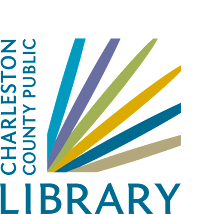Monday, November 29, 2010
Not Fiction Book Discussions List for 2011
We are already looking forward to next year's Not Fiction Book Discussions! We will begin with The Fourth Part of the World: The Race to the Ends of the Earth, and the Epic Story of the Map that Gave America It's Name by Toby Lester, which will set the theme for the 2011 discussions: our understanding of our world, the uses we make of it, our wanderings across it, our settlements on it, our confrontations with the elements and the animals that inhabit it, and our confrontations with each other. You can find the other titles for 2011 on the right side of this page.
And don't forget December's discussions of My Stroke of Insight: A Brain Scientist's Personal Journey by Jill Bolte Taylor: Tuesday, December 7, at 7:00 p.m. at Main Library and Thursday, December 16, at 11:00 a.m. at West Ashley Branch Library.
Happy reading and happy holidays!
And don't forget December's discussions of My Stroke of Insight: A Brain Scientist's Personal Journey by Jill Bolte Taylor: Tuesday, December 7, at 7:00 p.m. at Main Library and Thursday, December 16, at 11:00 a.m. at West Ashley Branch Library.
Happy reading and happy holidays!
Monday, November 22, 2010
December Not Fiction Book Discussions

We end our discussions for 2010 with My Stroke of Insight: A Brain Scientist's Personal Journey by Jill Bolte Taylor, who was named one of Time magazine's 100 Most Influential People in the World in 2008.
On December 10, 1996, Taylor, a 37-year-old Harvard-trained brain scientist, experienced a massive stroke in the logical left hemisphere of her brain that, while she watched and understood what was happening, shut down over the course of four hours, leaving her unable to walk, talk, read, write, or recall any of her life. However, she found herself immersed in the boundless, empathic, euphoric experience of her right brain. After eight years of recovery, Taylor regained her left-brain abilities, but she also learned that she could maintain access to her right-brain abilities.
In this passionate and personal memoir, Taylor explains clearly and scientifically, from the point of view of a neuroanatomist, what it felt like to experience the loss of her left-brain abilities and then recover them, as well as why an immersion in the world of the right brain feels as it does. She also provides a recovery guide for people who have experienced brain injury and their caregivers, including a chapter on What I Needed the Most and a list of Recommendations for Recovery. And for all readers, she offers ways we might "step to the right" to access the sense of well-being provided by right-brain awareness.
Taylor, in her particular kind of stroke and recovery, is truly what Malcolm Gladwell calls an outlier, a person who has succeeded beyond what others have achieved. Regarding her extraordinary experience, she says,
"I have learned so much from this experience with stroke that I actually feel fortunate to have taken this journey. Thanks to this trauma, I have had the chance to witness first-hand a few things about my brain that otherwise I would never have imagined to be true. For these simple insights, I will always be grateful--not just for myself but for the hope these possibilities may bring to how we, as a people, choose to view and nurture our brains and consequentlyShe also offers inspiration for all of us that we might achieve true well-being and happiness similar to hers, confirming Gladwell's thesis that success is a matter of practice and opportunity:
behave on this planet."
"I believe [Einstein] got it right when he said, 'I must be willing to give up what I am in order to become what I will be.' I learned the hard way that myYou can see Taylor speak about her stroke and recovery in a video of her powerful speech (over 1 million views on YouTube!) at a 2008 TED (Technology, Entertainment, Design) Conference:
ability to be in the world is completely dependent on the integrity of my neurocircuitry. Cell by beautiful cell, circuit by neurocircuit, the consciousness I experience with my brain is the collective awareness established by those marvelous little entities as they weave together the web I call my mind. Thanks to their neural plasticity, their ability to shift and change their connections with other cells, you and I walk the earth with the ability to be flexible in our thinking, adaptable to our environment, and capable of choosing who and how we want to be in the world. Fortunately, how we choose to be today is not predetermined by how we were yesterday."
We hope you will join our conversation: Tuesday, December 7, at 6:30 p.m. at Main Library; Thursday, December 16, at 11:00 a.m. at West Ashley Branch Library; or here on the blog.
Subscribe to:
Posts (Atom)
